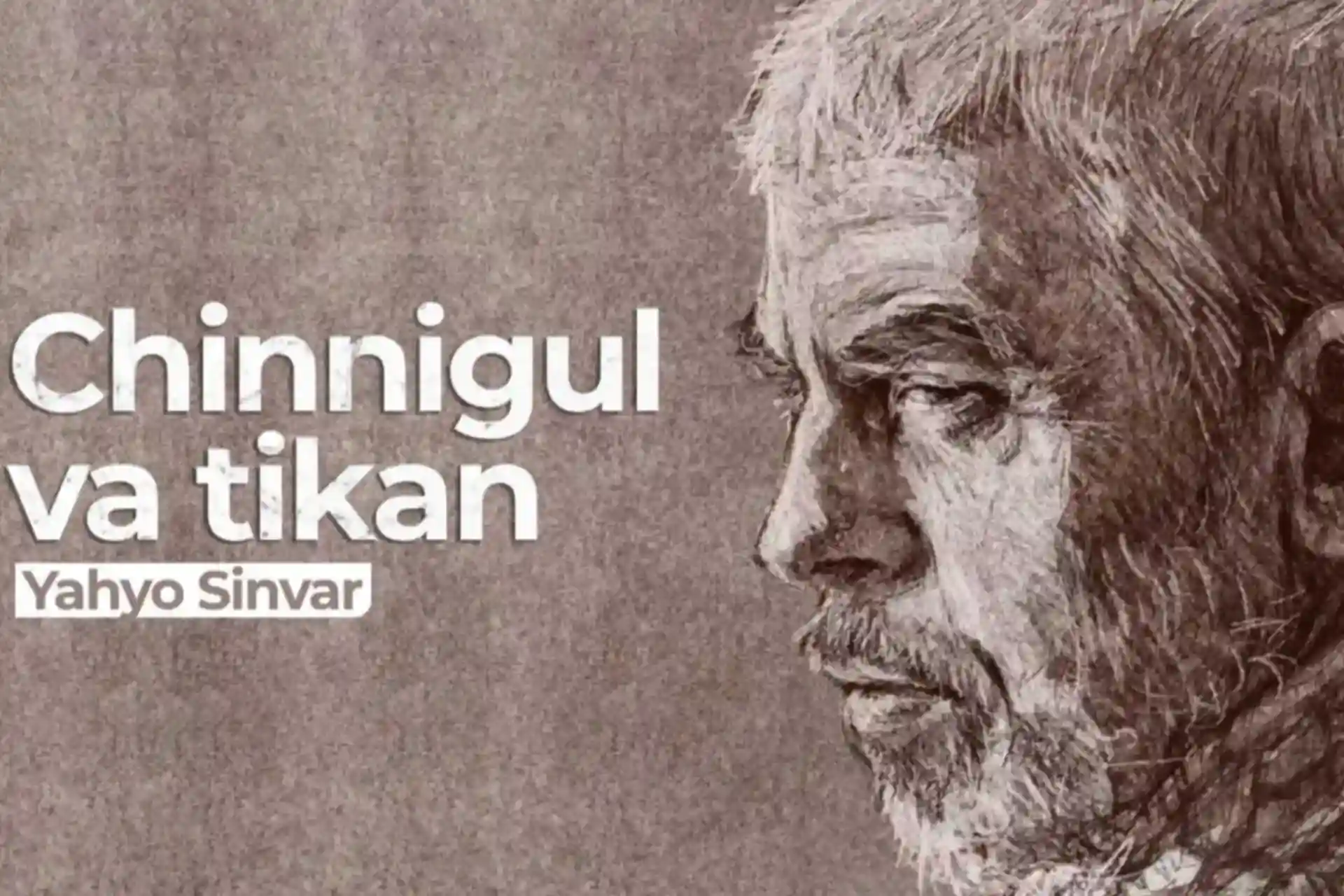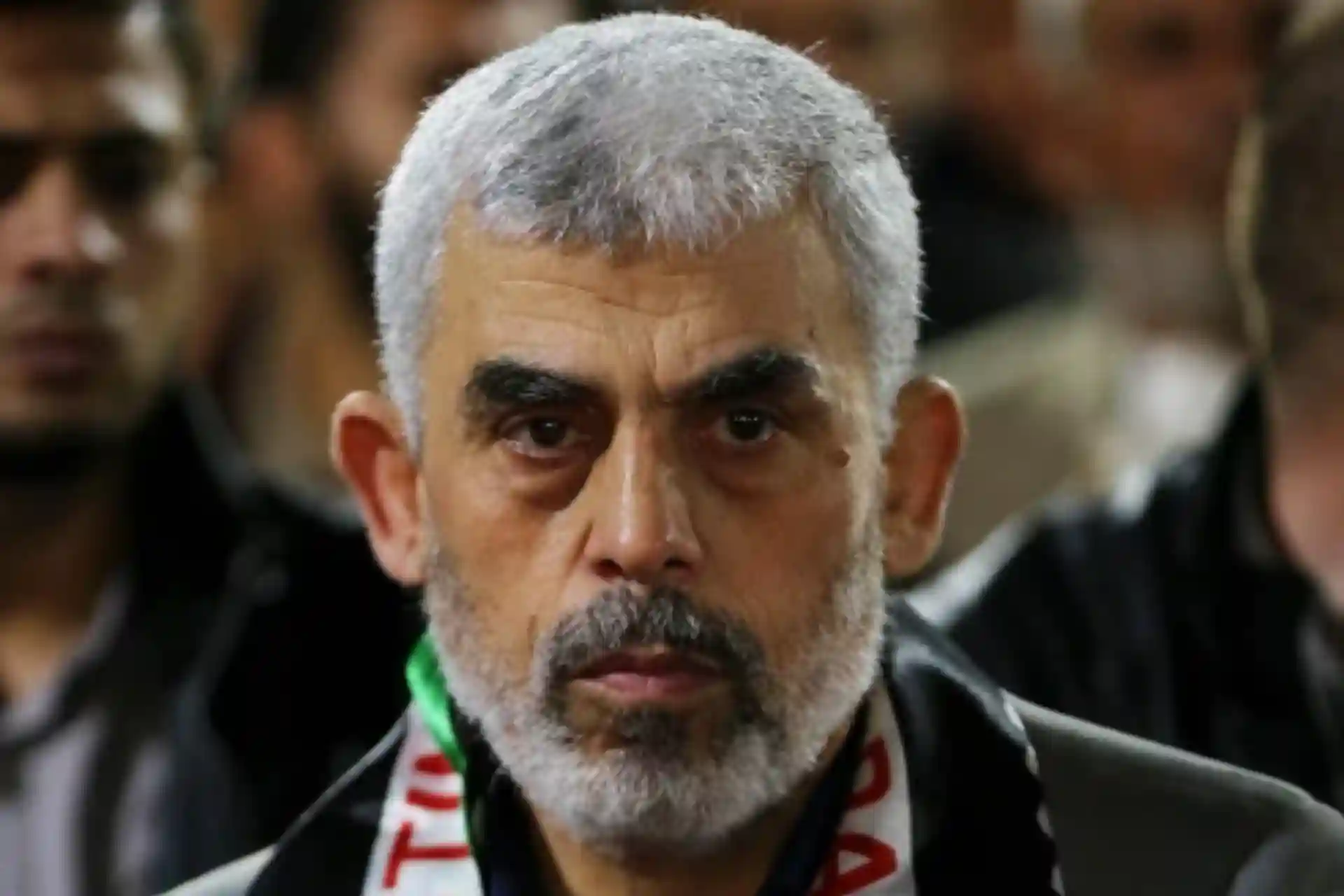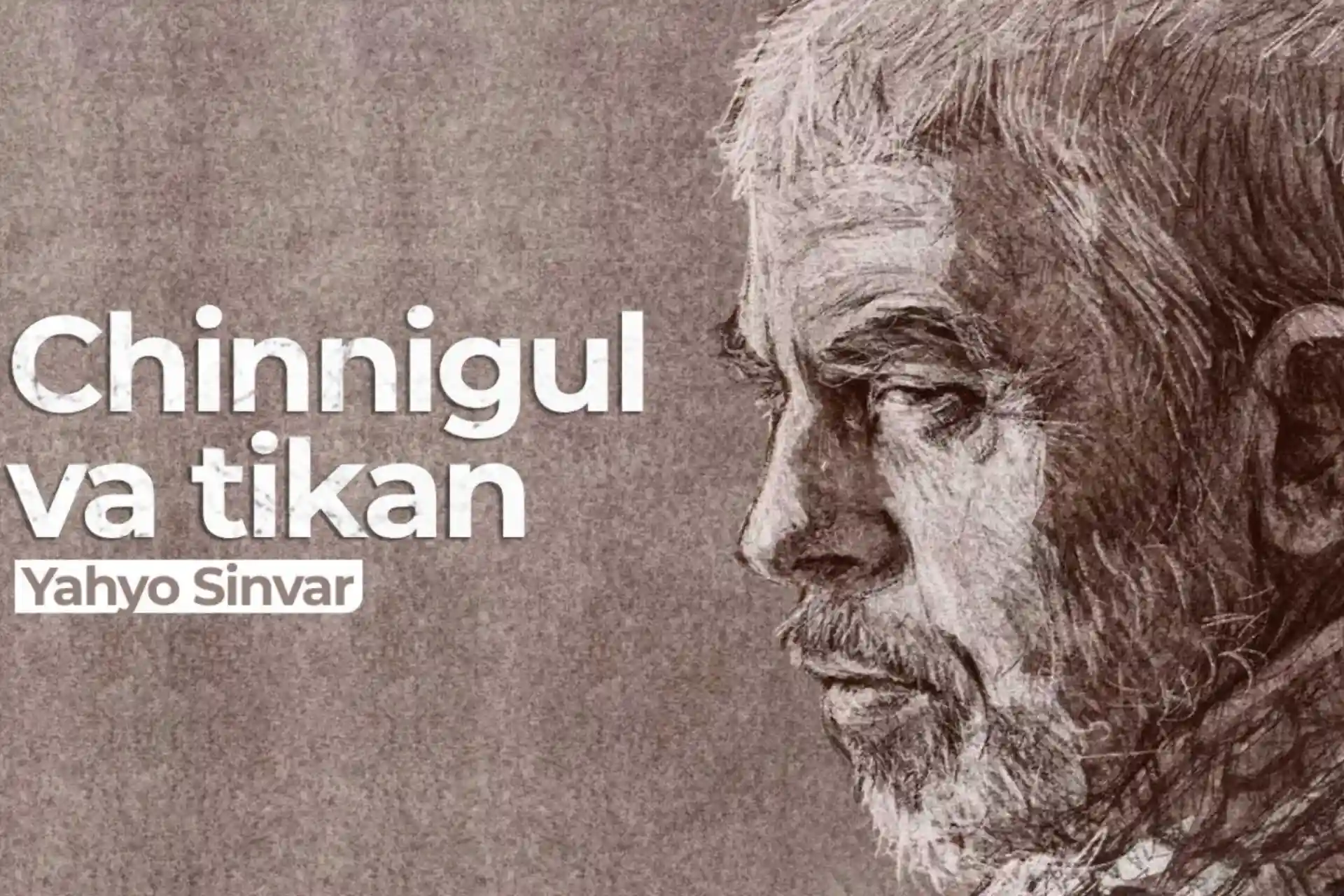16.11.2024 20:00
"Carnation and thorn" - Yahya Sinvar (short story, part seven)
We continue to publish the work "Cloves and Thorns" by the late commander, leader of the Palestinian Hamas liberation movement Yahya Sinwar. The seventh part. Translator - Ma'mur Mukhtar.
Part 1 Part 2 Part 3 Part 4 Part 5 Part 6
***
The fifth season
My aunt Fathiya, who recently got married, came to our house with her husband. My mother welcomed my aunt in her arms. My aunt kissed each of our faces. At this time, my mother went to prepare the place for the guests. We woke up my grandfather, and he took his belongings from the hands of our pooch, who was carrying a market bag in his hand, and welcomed him warmly. My sister Fatima made tea. After drinking a cup of tea, the pooch asked permission to go to my uncle as well. My aunt got up saying that if they stay with us for a day, she will take them tomorrow. No matter how hard my grandfather tried to persuade him to stay, he excused himself saying that he had important work to do. After that, we escorted them to the door. My grandfather went into his room, and my mother and aunt sat in my mother's room. We also sat in a circle around them. My mother opened the basket brought by my aunts and began to put the contents on the bed. One of the bags contained many red apples. I have never seen or eaten such an apple before. I can remember eating apples two or three times in my life, but the apples we ate were not that beautiful. In another bag there is a fruit that we don't even know the name of. When I grew up, I learned that the name of that fruit was peach. A milk product came out of another bag. When my mother took the goodies from the basket, she looked at my aunt and said: "Why did you try yourself with so many things, Fathiya?!" - he said. Aunt Fathiya, with tears in her eyes, said, "Sister, my master's work is good, but oh my, I wish I could help you more!" - he said with pity. When my mother took the fruits from the basket, she went out and washed them, then Mahmud distributed them to my brother, saying: "Give this to your grandfather and this to your uncle's children." So, we smiled all day in front of our new guest - our great aunt.
Abdulfattah became my uncle's dear guest last night. He told my uncle about the situation in Khalil region, other towns and villages. Abdulfattah Pochcha had finished the eleventh grade only two or three years ago. After that, he helped his father in his work. He was engaged in the care of domestic animals. He was consulting with his father about entering one of the Saudi universities in Jordan.
Uncle Abdulfattah asked Agha about our selfless fighters, the impact of the Israeli occupation on people's psyche, their economic situation and what is being planned.
After the capture of the city of Khalil, a wave of tourists began to flow in to visit the "Ibrahim Haram". The Jews considered themselves entitled to this land. The flow of tourists stimulated the growth of the city's economy. The reason is that city merchants tried to sell their products to tourists at the highest possible price. Even the nuts of the oak tree were well paid for. They believed that it was a holy relic from the land of our grandfather Abraham. In addition, the Jews used to buy from this city if they needed any equipment. For this reason, economic growth was observed.
Israeli soldiers were not among many people there. It was assumed that after the occupation of this city, the head of national security in Khalil, Sheikh Jabari, asked the military not to attack the civilian population in the agreement with the Israeli commanders. The chairman of the Israeli commanders at the meeting was Mushiyan Dayan. He followed this agreement and ordered his military to stay away from the common people.
The inhabitants of that land had not yet woken up from the sleep of defeat. Maglabiyat controlled people's fear of Jews. In the streets, the Jews walked freely as they wished, no one could do anything, and when someone thought of taking some action, the people around them were afraid and turned him away. Even so, all the same, our fighters were carrying out some operations outside this city - in the lands where the Israeli military is stationed. Or there were clashes in the towns and villages near this city.
Mujahideen living in towns and villages that Israel had not yet conquered, especially in mountainous areas, occasionally attacked the invaders, wounding them, and sometimes causing death. Then the Israeli soldiers would go back to their hilltops, which they were afraid to go to. The most famous of those fighters was "Abu Sharrar", who made the invading soldiers sleepless in this area.
"Fath" movement was trying to start operations around the city. Unfortunately, there were very few successes. Because whenever the fighters made a plan, they were arrested by the invaders as soon as they started the operation. Thus, he was knocked down before he could stand up. Perhaps this weakening was caused by the fact that people were busy with their own lives and economic growth. Advances on all fronts since the success of the warriors have turned this region into a deceiving landscape that looks shiny on the outside, and shivers on the inside. But it could not stop with the weakening of the military wing. The members of the "Fath" movement, on the political side, started their political activities with the People's Front, social activities, etc.
While Abdulfattah was explaining the news in the region in detail, my uncle would listen to him carefully, occasionally asking him to explain the differences between the West Bank and Gaza in order to better understand each issue.
In the Gaza Strip in 1967, the "Palestine Liberation" officers, who were dispersed, were reassembled and the "People's Liberation" movement was organized. This movement was organized more strongly than before, and at the same time, it started cooperation with "Fath" and "People's Front" groups. Despite the fact that the invaders arrested some representatives of the fighters and found out many of their secrets, despite the fact that they tried to discredit them, the general situation of the fighters in Gaza was not bad.
A few days after my aunt returned home, she received word that a woman's body had been dumped on the sidewalk in the western region outside the square. We rushed out to see Jussa. Indeed, there lay the body of a woman. No one knew who did it. Then rumors began to spread that the fighters were killed in action. No one dared to object to it, to ask for details, to raise their voice saying that it is not a practice. In fact, some infamous people who pretended to be selfless fighters tricked him into a trap, and after defaming him, they killed him in order to cover up their actions. Then they tried to interpret it as practice. The secret spies of the invaders used the weak point of the people in the way of their malice. The economically poor were recruited to provide information about selfless fighters. He used them to distort the image of the heroes who gained reputation among the public with their true bravery.
The invaders captured many men and young men and took them to the bases where the military was stationed. There, after beating and torturing the captives, a group of soldiers blindfolded them, tied their hands behind their backs, and made them face the wall. They were forced to stand for hours even on rainy and cold days. The captives were shivering from the cold, and the soldiers did not care about them, they took turns running away. If someone leaned against the wall or looked left or right, they would come and shake him. A little further away, in a comfortable room equipped with heating devices, there were several officers who called the prisoners to their rooms one by one. She moved to the chair in front of her, opened her eyes, and asked questions about her husband, family and brothers, and even her neighbors, especially about the warriors. Of course, these questions would not be without insults. They insulted him with the most vile and obscene words that a human being could utter, made fun of him, laughed at him and occasionally beat him. While interrogating, they tried to find the weak point of some of them, to lead them in their direction, and they tried to beg. Some were pressured and persuaded to spy against their compatriots. They were trying to get information about selfless fighters from someone else. Some of the young men would boil over these insults and erupt like a volcano. But, alas, they had no choice but to be patient. If Bordieu tried to do something, even stronger humiliation and anger awaited him. Even so, some young men resisted impatiently, because their hands were tied behind their backs, they could not stop four or five times, and in the end they were tortured even more. There were other categories that neither wanted to be on the side of the invaders nor on this side. They just wanted to take care of their children and live in peace. There were also those who would sell their land and their lives to the invaders for a pittance. They betrayed what they knew.
The situation of the militants in the Gaza Strip was much stronger compared to those in the West Bank. It can be said that the main reason for this is the presence of militant groups called "Palestine Liberation". This militant group was formed by "Arab systems" in order to ease the responsibility of Palestine. In the 1967 war, this army was disbanded, some of its fighters were martyred, and most of them left Gaza and went to Egypt or were sent away. Some of them founded the "People's Liberation" movement and continued their operations. In addition to them, there were some remnants of the "Fath" and "People's Front" movements, which began to organize in their own forms in the sector camps.
There is a translation by Ma'mur Mukhtar and a sequel



